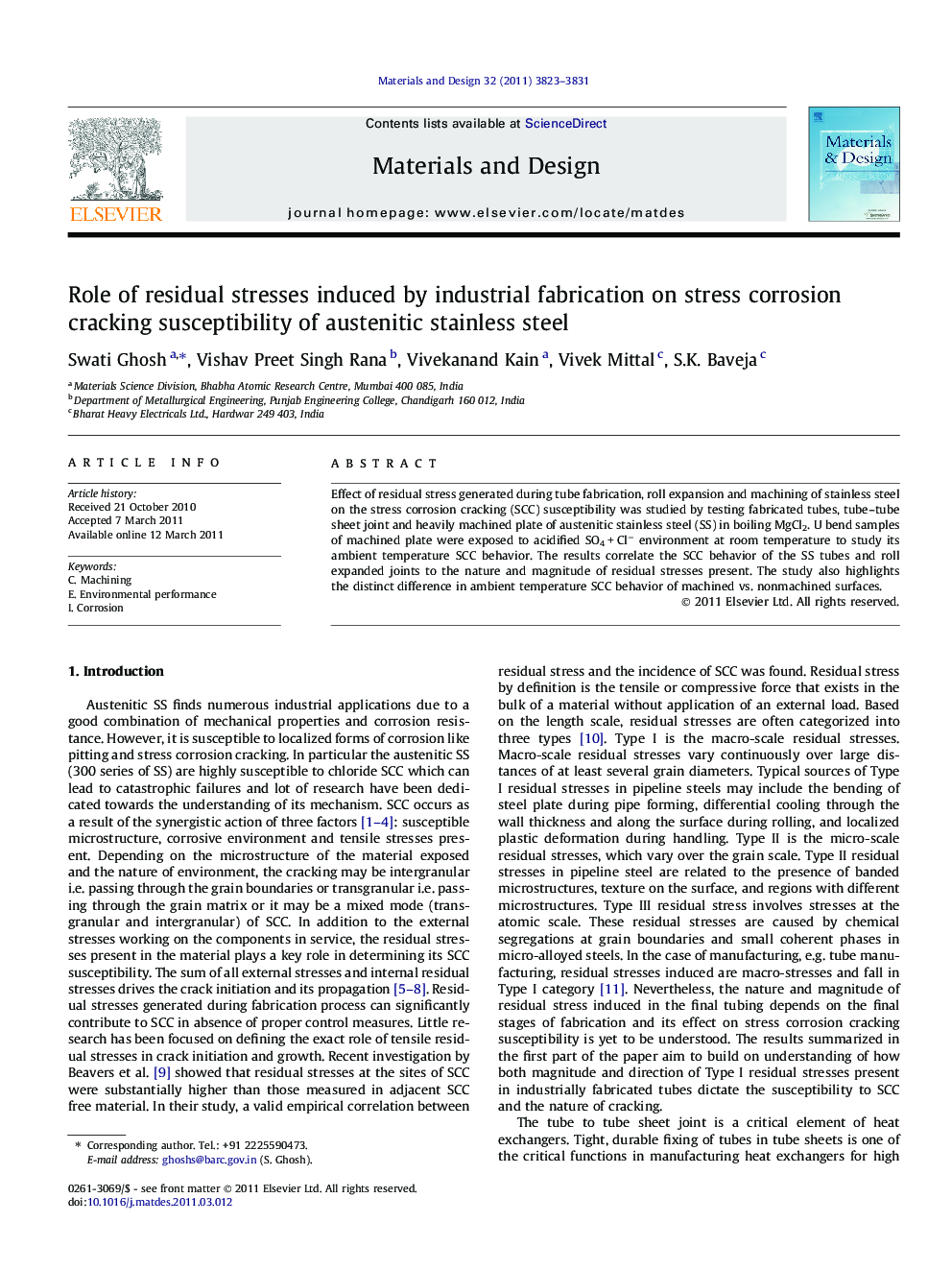| Article ID | Journal | Published Year | Pages | File Type |
|---|---|---|---|---|
| 831508 | Materials & Design (1980-2015) | 2011 | 9 Pages |
Effect of residual stress generated during tube fabrication, roll expansion and machining of stainless steel on the stress corrosion cracking (SCC) susceptibility was studied by testing fabricated tubes, tube–tube sheet joint and heavily machined plate of austenitic stainless steel (SS) in boiling MgCl2. U bend samples of machined plate were exposed to acidified SO4 + Cl− environment at room temperature to study its ambient temperature SCC behavior. The results correlate the SCC behavior of the SS tubes and roll expanded joints to the nature and magnitude of residual stresses present. The study also highlights the distinct difference in ambient temperature SCC behavior of machined vs. nonmachined surfaces.
► Residual stresses induced by tube straightening determine the nature of stress corrosion cracking. ► Roll expanded tube–tube sheet joints of 304L SS are highly susceptible to stress corrosion cracking. ► Surface machining results in drastic increase in the stress corrosion cracking susceptibility of 304L SS.
